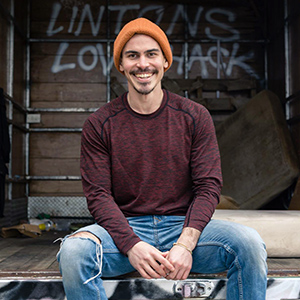
A residential addiction treatment program for men offers steady routines, strong support networks, and practical skills for lasting sobriety. At Opus Treatment in sunny Costa Mesa, staff work hand-in-hand with each man to help him cut loose from substance use, rebuild confidence, and start fresh in a space that feels both safe and motivating.
Addiction hits everyone differently. Research shows men often run head-first into risky choices and hide how they feel. That mix makes men-only programs not just helpful, but often necessary.
Why Men-Only Residential Treatment Matters
Substance use in men is rarely a straightforward party; there are habits and mindsets tangled in every drink and pill. Treatment teams notice that many guys:
- Seek thrills even when they know the odds are bad.
- Stuff their feelings deep rather than talk them out.
- Carry old hurts in silence and call it being tough.
- Dodge therapy or group sessions because the culture says asking for help is weak.
Putting those men together lets the counselors speak directly to the code they live by. The conversation moves faster when no one is playing defender or sounding tough for the room. Real change usually follows.
What to Expect When a Man Enters 24/7 Addiction Care
1. Always-On Medical Support
Detox can feel like a storm, and having a doctor or nurse nearby calms the worry. Trained staff watch for shaking limbs, racing hearts, or sudden panic, making sure nothing spins out of control.
2. Treatment Plans Built Just for Him
No two stories line up perfectly, so no one-size-fits-all approach cuts it. Counselors size up the drug, the drinking history, and any silent anxiety or PTSD before sketching a road map that usually includes
- Cognitive-behavioral therapy, or CBT
- Dialectical Behavior Therapy, called DBT for short
- Sessions that walk through past trauma
- Family meetings to clear the air
- Workshops on beating relapse triggers
3. All-Male Living Arrangements
Moving in with guys who know the same fight creates a code of trust that softens the toughest exterior. Many men discover they crack jokes, swap stories, and even hold one another accountable without thinking too hard about it.
Rewriting the Rules of Manhood in Group Therapy
Old-school ideas say a real man keeps hurt inside and never shouts for help. A program designed only for men quietly flips that script.
Inside those four walls, students hear:
- Real strength shows up when you ask, How can I fix this?
- Letting someone see your cracks does not break you.
- Mastering your emotions instead of letting them rule you is pure power.
- He doesn’t have to figure this out by himself; others are on the same path.
Support arrives in several simple forms:
- Casual group talks about what it means to be a man today.
- Quick role-plays that ask, What would I do next?
- Straight-up anger and communication classes that keep words from turning into punches.
Dual Diagnosis: Treating Both Addiction and the Hidden Fight
Plenty of guys who drink or use also carry quiet burdens like:
- The heavy cloud of depression.
- Nerves that jump at the smallest noise, aka anxiety.
- Flashbacks that sneak in and ruin a good moment, are known as PTSD.
- Wild mood swings that swing from calm to stormy, are called bipolar disorder.
A solid program will not just pull booze or drugs out of the system; it will run the mental health playbook at the same time. If counselors let only the drinking go, the hidden trouble usually drags a man back to the bottle or the needle.
Why a Tight Schedule Matters
Waking up without a plan paints the day gray and blank. Housing-based recovery, whether the beds are bunked or private, strings minutes into hours that mean something. Picture this timetable:
- Early breathing exercises and a quick look in the mirror.
- Circle talk that digs into last night’s cravings.
- One-on-one chats with a therapist who knows addiction talk.
- Push-ups, yoga, or a jog-that the body part.
- Hands-on classes about resumes, kitchens, or finances.
- Evening huddles where the only rule is, to say whatever.
Putting that kind of beat into the day flips the on-off switch from chaos to calm. Balanced hours leave fewer chances for old habits to rush back in.
Family Involvement in Men’s Recovery
Addiction is rarely a solo act; its wake stretches into homes, classrooms, and living rooms. Many men leaving substance use treatment still wrestle with the father, brother, or husband they let down.
Top-notch residential addiction treatment program for men in daily life, offering:
- Weekly counseling where everyone can speak and listen
- Short, eye-opening seminars that explain how addiction works
- Exercises meant to rebuild trust and even crack a smile
- Close-out dialogues that ask, How do we move forward together?
Research shows when loved ones are in the loop, long-term sobriety rates climb. Family, it turns out, can be the safest safety net.
Life Skills and Vocational Training
Kicking drugs or alcohol is only half the journey; walking a straight line between work and home is the other half. Good programs arm men with the know-how to:
- Track money so rent never slips away
- Hunt for jobs beyond the factory wall
- Cook a decent meal rather than rely on takeout
- Handle bills, buddies, and, yes, the occasional miscommunication
Mastering these everyday victories helps a person feel grown-up again. When sobriety sits next to real independence, the pull to relapse weakens.
Tackling Trauma and PTSD in Guys
Lots of men turn to alcohol or drugs because something inside them never got to rest. That unfinished hurt could come from:
- Abuse or being ignored while they were kids.
- Horrifying days on the battlefield.
- A brutal mugging or a car wreck.
- Years of being told their feelings didn’t count.
Centers that focus on trauma use tools like EMDR and Somatic Experiencing to unstick those memories. The goal is simple: let the past slip out of the rearview and stop stealing the present.
Sweat, Food, and Feel-Good Therapies
Movement helps more than couches ever will. A daily mix of stuff such as:
- One-on-one training at the gym.
- Sparring in a boxing ring.
- Trekking into the hills or catching a wave.
- Breathing through yoga or 10 minutes of quiet.
- Learning to shop and cook on a budget.
All of it teaches the body it can have fun again, the mind it can be calm, and the spirit it can stand tall. Together, those wins stitch up the ragged edges of recovery.
Real-Life Comebacks: Men Who Turned Their Lives Around
Stories from the field show just how powerful a male-only treatment stay can be. Guys who thought they hit rock bottom go on to:
- Hold their kids again and patch up old family rifts.
- Launch small businesses or clock back in at the job they left.
- Step up as peer mentors and pay forward what they learned.
- Mark one, five, even twenty-plus years of staying clean.
A surprising number keep showing up at local meetings to lift newcomers and share hope.
Picking the Right Residential Program for Men
Choosing a program is personal, but a few checklist items will keep you grounded:
- Is the center licensed and accredited by a state board?
- Can they handle medical detox under the same roof?
- Are the counselors trained specifically in men’s issues?
- What mix of talk therapy, bodywork, and holistic practices do they serve?
- Do families get invited to visit and take part?
- How active is the alumni network once treatment ends?
Trustworthy programs lead with transparency; a warm, no-drama tour usually tells you everything.
Why Opus Treatment in Costa Mesa Stands Out
Opus Treatment has earned a reputation as one of SoCal’s top residential programs for men. Staff members blend clinical rigor with plainspoken compassion, customizing the care plan to fit the dude in the bed. Weekend family BBQs and a robust alumni group keep the support alive long after discharge. For many an Opus graduate, recovery stops feeling like work and starts to look like life.
What Makes Opus Stand Out
Opus Treatment runs inside a brand-new building that feels bright and comfortable instead of clinical. Picture soft chairs, lots of natural light, and quiet walking paths.
The clinical staff is stacked. Every therapist holds at least a master’s license, and doctors and nurses stay on-site around the clock.
Many rehab centers treat the addiction, but Opus digs into the emotional side. It runs groups that ask guys to wrestle with masculinity, shame, and honest feelings.
Alumni don’t just disappear when graduation day rolls around. Weekly check-ins, fishing trips, and online video circles keep everyone connected.
Vets and newbie clients both get a dual diagnosis team that can handle addiction plus PTSD or any other trauma. One medical record follows each man so care never skips a beat.
Costa Mesa is ten minutes from the beach, a short hike from the canyon trailheads, and close to coffee shops that welcome sober folks. Fresh air becomes part of the prescription.
Start a conversation or simply browse more details at Opus Treatment.
Community-Isolating Narcotics Never Work Alone
Eating alone in a room or scrolling a phone all night easily pulls an addict back into old habits. Many residential programs fix this risk by inserting community wherever possible.
Weekend barbecues, bowling nights, and pickup basketball let guys blow off steam without booze or pills. A shared laugh over a missed shot can do more for sobriety than a textbook lecture.
Organized 12-step meetings happen on-site, but buddies frequently drag each other to off-campus gatherings too. Riding shotgun to a late-line meeting quickly becomes routine.
Friendship circles do not collapse the moment a patient leaves. Text chains, study groups, and daily check-in calls keep the accountability wheels turning.
Mapping Life Beyond Four Walls
Graduation feels great, yet real-world temptations wait just outside the exit sign. A smart exit strategy weaves several threads together, starting the first week of treatment.
Many men step down to an outpatient schedule that still mixes work, therapy, and occasional relapse prevention classes. The commute sometimes gives a new perspective.
Others swap a bedroom for a sober living house that bans alcohol and drugs but allows late-night video games. Housemates keep the music low and the doors unlocked for accountability.
Alumni clubs meet anywhere from a church basement to a backyard patio, and they double as job leads. Old-timers share resumes, and newcomers borrow advice.
Case managers line up one-on-one therapy slots, and employment specialists jump in when a client lists job hunting as a goal. No man should ever fill out a job app alone.
Final Thoughts: Choosing Courage and Clarity
Signing up for a residential addiction treatment program for men is often much more than a medical detox—a lot of guys call it a second home, a launching pad, and that one reliable support crew they never imagined they’d find. At Opus Health, it’s usually the first spot in years where a guy can sit still, spill his story, and feel like someone is listening. If you or someone who matters to you has been fighting this battle, waiting for rock bottom is a risk no one needs to take. Fresh starts happen the moment a decision is made, not the moment a pain hits its peak.
Frequently Asked Questions
Q: How long is a residential addiction treatment program for men?
A: Stays can drift anywhere from a fast-paced 30 days to a full-on 90, based on what the counselors see in groups and what the charts end up saying.
Q: Is the family allowed to visit during residential treatment?
A: Most centers roll out visiting hours and even set up family therapy so loved ones can share the ride, ask questions, or clear the air.
Q: Can I work while in a residential program?
A: Generally, the answer is no work waits while the focus jumps to recovery. A few extended programs, however, sneak in light job skills or job-search workshops once guys are solid on their basics.
Q: Is residential addiction treatment covered by insurance?
A: Most private insurance plans do kick in for an inpatient stay, but a quick call to the treatment center billing office and a look at your member portal will nail down the fine print.
Q: What comes next, once inpatient care wraps up?
A: People usually step straight into aftercare, which can blend outpatient therapy, a sober living house, and weekly check-ins with a counselor to keep the wins growing.






